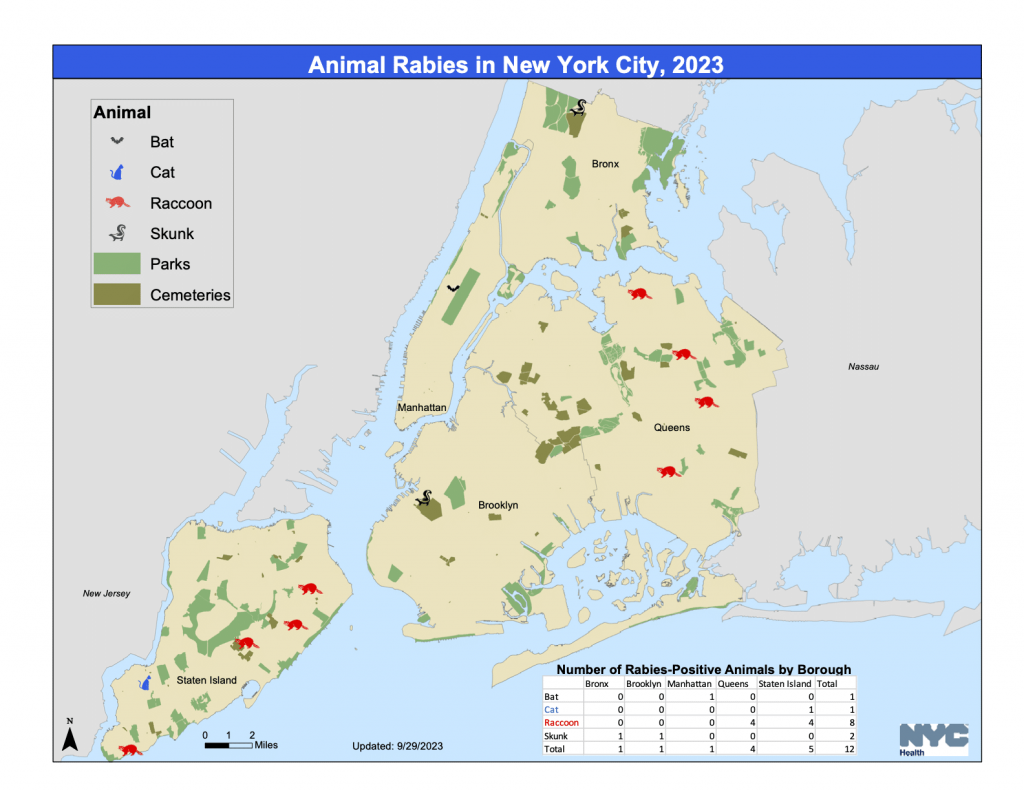On September 28th, we celebrate the 102nd birthday of Louis Pasteur by honoring his pioneering work in developing a vaccine against rabies. The anniversary of his birth has been designated World Rabies Day in remembrance of Dr. Pasteur and the millions of lives he continues to save with the rabies vaccine.
Eliminating Dog Rabies
World Rabies Day is officially hosted by the Global Alliance for Rabies Control. One of their goals is to eliminate dog rabies by 2030. As you can see from the map accompanying this blogpost and produced by our colleagues at the NYC Department of Health and Mental Hygiene, dog rabies is not an issue in our city. In 2023, there were eight raccoon rabies cases, two skunks and a cat and a bat. Notice many of the rabies cases were identified near parks and cemeteries, which provide nice habitats for wild animals. They also provide nice spaces for humans to walk, exercise and relax, potentially putting them in close contact with rabid animals.
Rabies at a Pet Adoption Event
While NYC enjoys an absence of canine rabies, people attending a recent adoption event in Colorado were not so lucky. A puppy adopted at the event got sick and was ultimately diagnosed with rabies. Many people were exposed to this puppy at the adoption event. I am sure the local health department was busy contacting people from the event and determining who needed post-exposure prophylaxis to protect them against rabies. Rabies is uniformly fatal and if you have exposure to a rabid animal, this treatment protects you against almost certain death.
Rabies and One Health
Rabies is an example of a One Health disease. One Health explores the connection between the health of animals, people, and the environment. When the interface between animals and people shift because of changes in the environment, patterns of disease shift. Humans impact that interface by feeding wild animals, bringing them even closer to our homes and families. Protecting humans against diseases like rabies under underlies the recommendation NOT to feed wild animals in your yard and to keep trash cans tightly covered.
If you are interested in learning more about One Health, consider attending our virtual One Health Conference in November. Sign up for our pet health newsletter and follow us on social media for updates as they’re announced.

